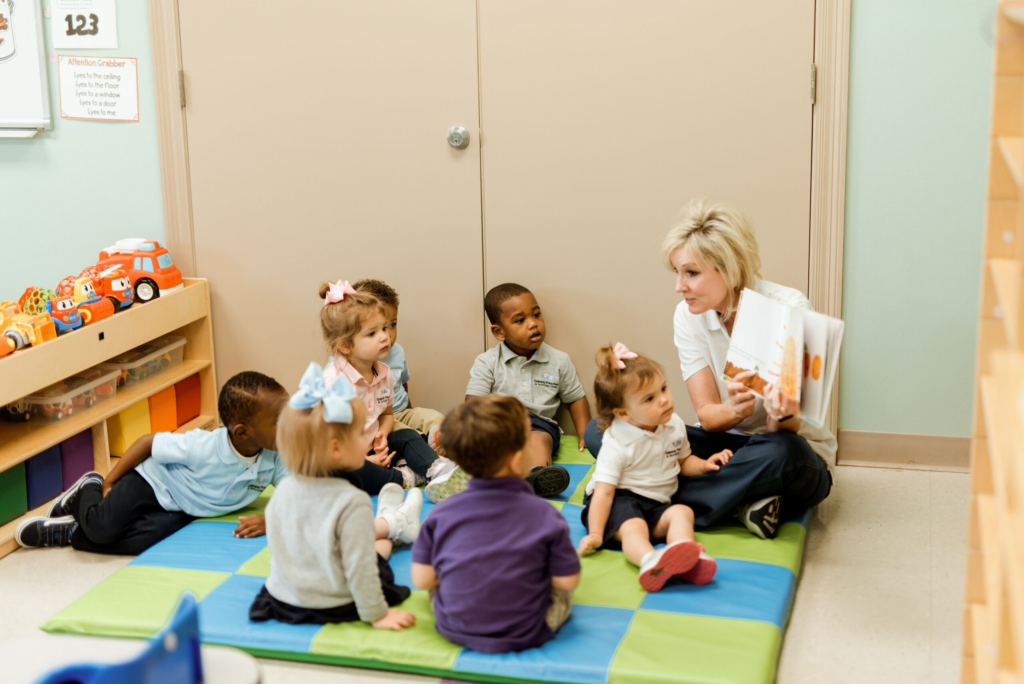
Introduction:
Daycare often the first step in a child’s formalized education journey, serves as a gateway to early childhood enrichment. In this article, we will unravel the layers of daycare, exploring its multifaceted role in providing a nurturing, educational, and socially engaging environment for the youngest members of our communities.
1. A Safe Haven for Early Learners:
Daycare centers prioritize creating a safe haven for early learners. Rigorous safety measures, secure facilities, and trained staff ensure that parents can entrust their children to an environment where their well-being is paramount. This safety net allows children to explore, play, and learn with a sense of security.
2. Building Blocks of Social Skills:
Socialization is a key aspect of daycare that goes beyond mere play. It is a foundational period where children learn to interact, share, and collaborate with their peers. The structured social environment of daycare becomes a microcosm of society, fostering the development of crucial social skills that are essential for a child’s future relationships and interactions.
3. Educational Play: The Heart of Daycare Learning:
Quality daycare centers integrate educational play into their curriculum. Play becomes a powerful tool for learning, helping children develop cognitive, motor, and problem-solving skills. Through games, activities, and hands-on experiences, daycare becomes a dynamic space where young minds are stimulated and engaged.
4. Nurturing Emotional Resilience:
Daycare is not just about academics; it’s a place where emotional resilience is nurtured. Caregivers and educators provide emotional support, helping children navigate the early challenges of being away from home. The bonds formed in daycare contribute to a child’s emotional well-being and lay the groundwork for positive relationships in the future.
5. Parental Collaboration: The Daycare-Home Connection:
Quality daycare centers recognize the importance of collaboration with parents. Open lines of communication, regular updates, and parent-teacher interactions create a seamless connection between daycare and home. This partnership ensures that parents are actively involved in their child’s developmental journey, bridging the gap between home and daycare.
6. Celebrating Diversity and Inclusion:
Daycare is a melting pot of diversity, bringing together children from various backgrounds, cultures, and experiences. Quality daycare centers celebrate this diversity, fostering an inclusive environment where every child feels valued and accepted. These early experiences shape a child’s understanding and appreciation for the richness of human diversity.
7. Preparation for Formal Education:
Daycare serves as a preparatory phase for formal education. Structured learning activities, exposure to basic academic concepts, and the development of essential skills create a smooth transition for children entering formal schooling. The skills acquired in daycare set the stage for a positive start to their educational journey.
8. Holistic Development: Mind, Body, and Heart:
Beyond academics, daycare centers focus on the holistic development of a child—mind, body, and heart. Physical activities, creative arts, and emotional support contribute to a well-rounded early childhood experience. Daycare becomes a space where children not only learn but also grow in all dimensions of their being.
Conclusion:
Daycare is a pivotal chapter in a child’s early years, laying the foundation for a lifetime of learning and growth. As parents navigate the landscape of childcare options, the role of daycare emerges as more than just a convenience—it becomes an essential investment in a child’s formative years. In daycare, young learners find a bridge to the world of education, exploration, and the joy of building the skills that will shape their future.